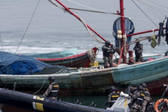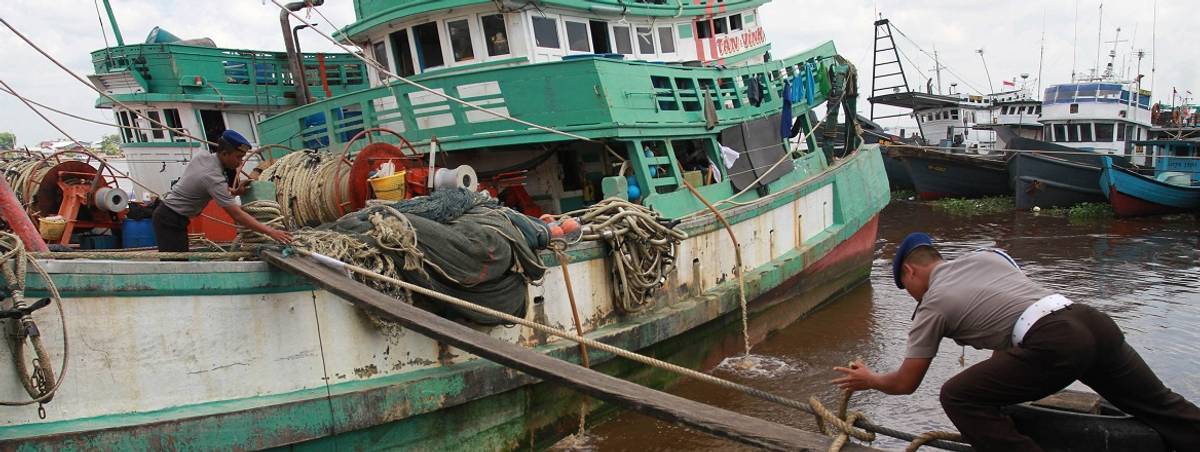Turning the Tide: Learning from Responses to Large-Scale Illegal Fishing
This project conducted a cross-regional analysis to establish the factors behind the collective failure to provide an adequate global response to large-scale illegal fishing.
Illegal, unreported and unregulated (IUU) fishing poses not only a systemic threat to the marine environment, but also a sustained threat to national and regional security. While many states have enacted key measures to address IUU fishing, progress in implementing effective practical measures has often been limited. The result has been a collective failure, at a systemic level, to provide an adequate global response.
This lack of progress has rarely been the subject of detailed cross-regional analysis. Little work has been done to assess the extent to which existing measures have mitigated the role that transnational organised crime plays in IUU fishing.
This project sought to address these gaps by examining experiences in five countries: Indonesia, Thailand, Vietnam, Tanzania and South Africa. In each case, the project investigated the successes and failures of existing responses, offering a more comprehensive understanding of the obstacles to – and opportunities for – effective action.
Aims and objectives
On the basis of a comprehensive literature review, 106 semi-structured interviews and four focus groups across Indonesia, Thailand, Vietnam, Tanzania and South Africa, the report aimed to identify the key features of the multidimensional threat posed by organised, large-scale IUU fishing in the focus countries. It sought to investigate, in particular, the convergence between IUU fishing and other crimes.
In responding to this threat, the project aimed to identify the key challenges encountered in bolstering legislative, regulatory and institutional frameworks, strengthening detection and interdiction capabilities, and enhancing investigation and prosecution. Challenges were found to range from insufficient prioritisation of upskilling for the operation of new technology, to ensuring that officers possess the breadth of skills required to identify the broader crimes with which IUU fishing intersects. In considering experience in these areas, a core aim was to identify opportunities to address these challenges, highlighting successes and best practice where these have emerged.
To ensure progress in tackling this multidimensional threat, it is crucial that this real-world experience is regularly accounted for, with lessons translated into updated policy and practice. The report drew on the analysis to offer practical recommendations.
Project sponsor
The PEW Charitable Trusts
The project research was supported by the Pew Charitable Trusts.
Project outputs
Access the main publication output for this project and the accompanying Twitter thread.

Project impact
The Turning the Tide report was extensively cited by the United States International Trade Commission's 2021 investigation into the impact of IUU fishing on US imports and commercial fisheries.








